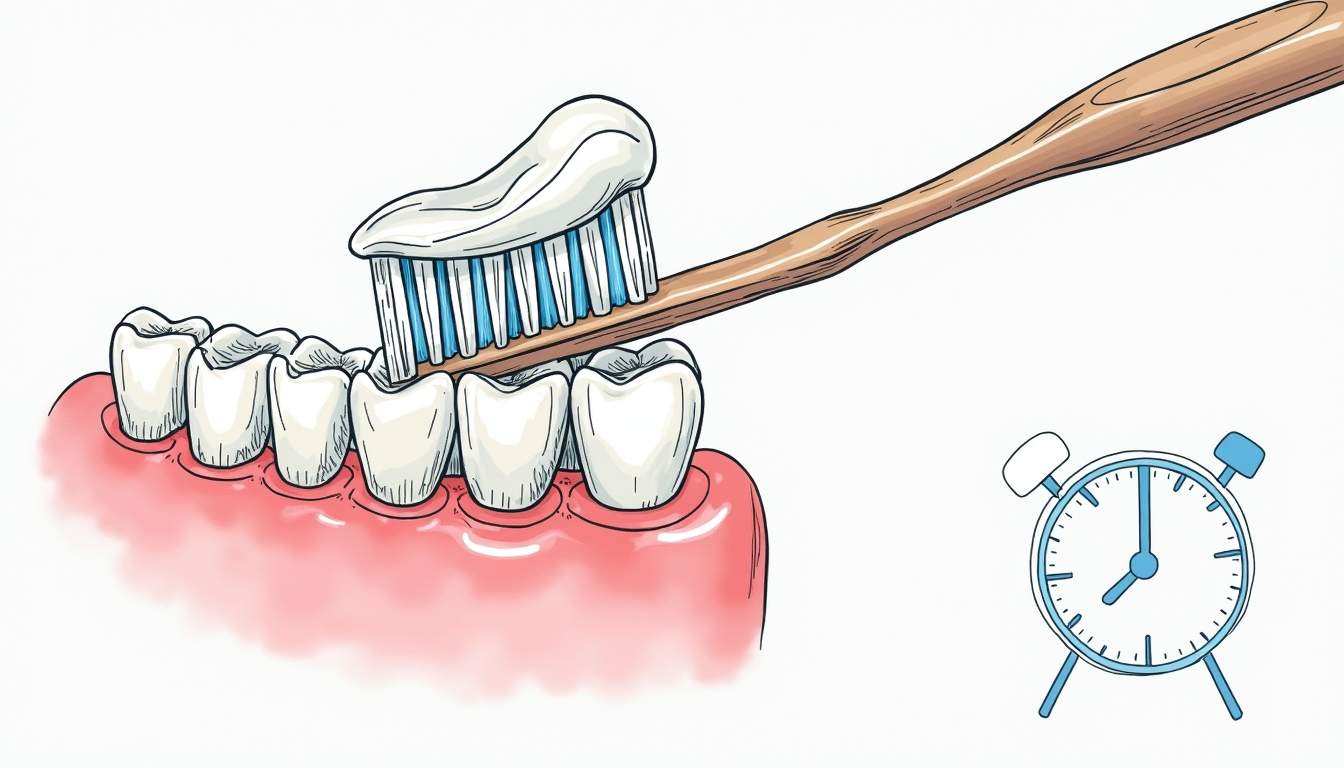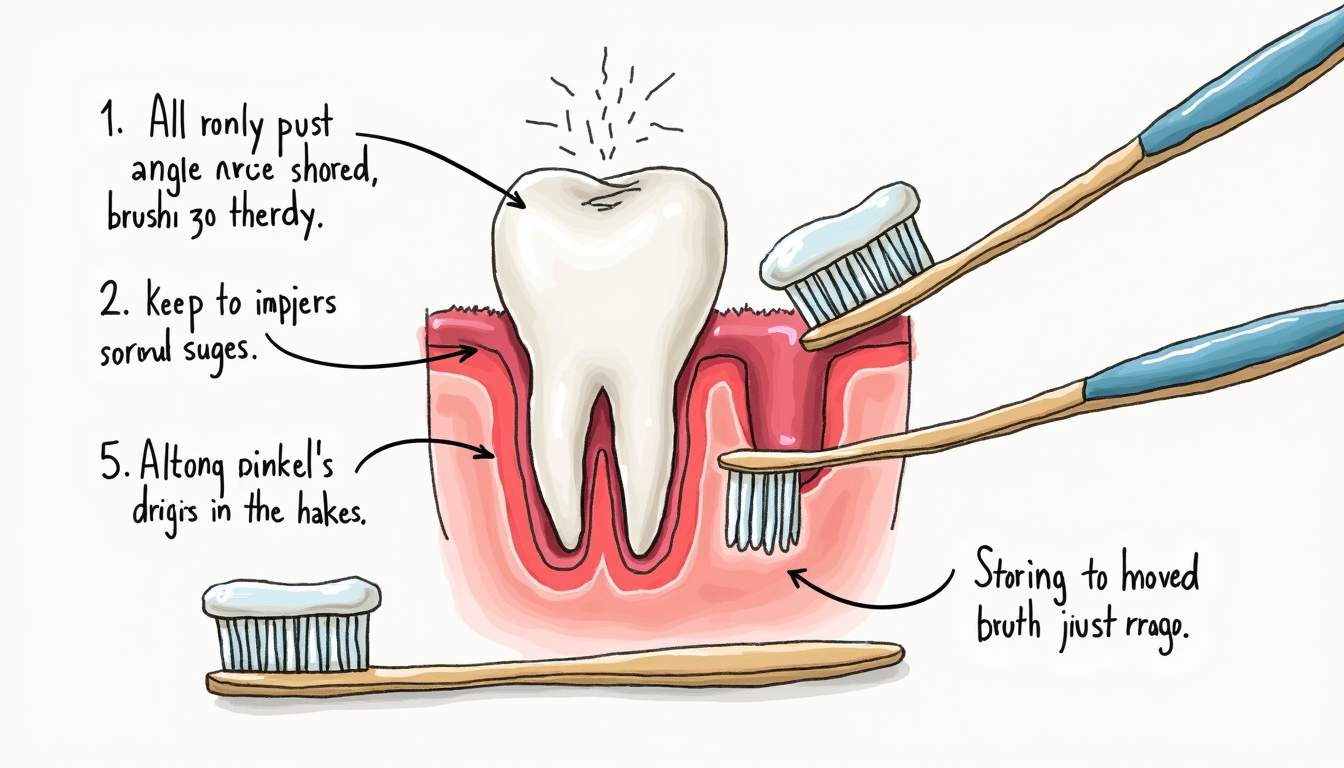

Maintaining good oral hygiene is crucial for overall health and well-being. One essential practice in oral care is brushing your teeth regularly. This article delves into the importance of brushing, highlights its benefits, shares effective techniques, and discusses common mistakes to avoid. Understanding these elements will help you foster a healthier lifestyle.
Oral hygiene consists of practices that maintain the health of the mouth, teeth, and gums. It’s not merely about aesthetics; it significantly influences overall health. Poor oral hygiene can lead to a myriad of dental problems, impacting not just your smile but also your confidence and quality of life. Neglecting oral care can result in issues such as cavities, gum disease, and even tooth loss, all of which can have far-reaching consequences on one’s self-esteem and social interactions. Moreover, the financial burden of dental treatments can be substantial, making it even more critical to establish a consistent oral hygiene routine.
Research has shown a clear correlation between oral health and general health. Conditions such as heart disease, diabetes, and respiratory illnesses can be exacerbated by poor dental hygiene. Bacteria that accumulate in the mouth can enter the bloodstream and contribute to systemic issues, making it essential to prioritize oral care as a preventive measure. For instance, individuals with diabetes are at a higher risk for gum disease, which in turn can make blood sugar levels harder to control. Furthermore, studies suggest that pregnant women with poor oral health may be at an increased risk for preterm birth and low birth weight babies, highlighting the importance of maintaining good oral hygiene during pregnancy.
Brushing your teeth helps remove food particles and plaque—a sticky film of bacteria that forms on teeth. If not effectively removed through brushing, plaque can harden into tartar, leading to more severe dental problems. Regular brushing is a primary method to combat these concerns and maintain optimal oral health. It’s recommended to brush at least twice a day with fluoride toothpaste to strengthen enamel and protect against decay. Additionally, the technique used while brushing is crucial; gentle, circular motions are more effective than harsh back-and-forth scrubbing, which can damage gums and enamel. Alongside brushing, incorporating flossing into your daily routine is equally important, as it helps clean areas between teeth that a toothbrush can’t reach, further reducing the risk of cavities and gum disease.
Tooth brushing is a simple yet effective way to maintain oral hygiene. The benefits of regular tooth brushing extend beyond just having a beautiful smile; they can influence your overall health as well.
Tooth decay is one of the most common dental problems affecting many individuals. By brushing regularly, you can significantly reduce the risk of cavities forming on your teeth. Additionally, proper brushing helps prevent gum disease by keeping the gum line clean and free from plaque accumulation. Plaque, a sticky film of bacteria, can harden into tartar if not removed, leading to more severe dental issues. Regular brushing disrupts this process, ensuring that your teeth and gums remain healthy and free from infection.
A bright smile can have a positive impact on your self-esteem and confidence. Regular brushing not only removes food particles and stains but also helps brighten your teeth over time. When coupled with professional cleanings, brushing can keep your smile looking vibrant and healthy. Moreover, many toothpaste brands now offer whitening formulas that can enhance the brightness of your teeth even further. This means that with consistent brushing, you can enjoy a radiant smile that reflects your overall well-being and attention to personal care.
Bad breath, or halitosis, can be a major source of discomfort in social situations. Routine brushing, along with flossing and mouthwash, helps eliminate food residues and bacteria that cause unpleasant odors. Maintaining fresh breath is an often-overlooked benefit of good oral hygiene practices. Additionally, certain foods and beverages, like garlic and coffee, can contribute to bad breath, making it even more crucial to brush regularly. By incorporating a comprehensive oral care routine, you can ensure that your breath remains fresh throughout the day, allowing you to engage confidently in conversations without worry.
Beyond oral health, regular tooth brushing has been linked to various overall health benefits. Research suggests that poor oral hygiene can contribute to systemic conditions such as heart disease, diabetes, and respiratory infections. The mouth serves as a gateway to the body, and bacteria from periodontal disease can enter the bloodstream, potentially leading to inflammation and other health complications. By maintaining a diligent tooth brushing routine, you not only protect your teeth and gums but also support your body’s health in a holistic manner.
Investing time in regular tooth brushing can also lead to significant cost savings in the long run. Preventive care is far less expensive than restorative treatments. By avoiding cavities and gum disease through diligent brushing, you can reduce the likelihood of needing fillings, root canals, or even extractions, which can be costly and time-consuming. Regular brushing, combined with routine dental check-ups, ensures that any potential issues are caught early, allowing for less invasive and more affordable treatment options.
To gain the maximum benefits from brushing, it is important to employ effective techniques. Let’s explore how to optimize your brushing approach for the best results.

Not all toothbrushes and toothpaste are created equal. When selecting a toothbrush, consider one with soft bristles to avoid damaging your gums. Electric toothbrushes can also be effective for enhancing plaque removal. Similarly, choose a fluoride toothpaste, which has been proven to strengthen enamel and prevent cavities. Additionally, look for toothpaste that contains ingredients like xylitol, which can help reduce cavity-causing bacteria. For those with specific dental concerns, such as sensitivity or whitening needs, there are specialized formulas available that cater to these issues, providing a tailored approach to oral care.
It’s not just about how often you brush, but also how you do it. Use gentle circular motions to thoroughly clean every surface of your teeth, including inner, outer, and chewing surfaces. Aim for at least two minutes of brushing, twice a day, to adequately remove plaque and protect your teeth. To help keep track of time, consider using a timer or an electric toothbrush with a built-in timer. This can ensure that you are dedicating enough time to each quadrant of your mouth, leading to a more comprehensive clean. Remember, consistency is key; brushing at the same times each day can help establish a routine that promotes better oral hygiene.
Many people neglect the tongue and gum line when brushing. However, these areas can harbor bacteria that contribute to bad breath and gum disease. Make it a habit to gently brush your tongue and carefully clean along the gum line to maintain a healthier mouth. Using a tongue scraper can also be an effective addition to your oral hygiene routine, as it specifically targets the buildup on the tongue that regular brushing might miss. Furthermore, massaging your gums with your toothbrush can stimulate blood flow and promote gum health, reducing the risk of gingivitis and other periodontal issues. By paying attention to these often-overlooked areas, you can significantly enhance your overall oral health and freshness.
While brushing is essential for good oral hygiene, there are common mistakes that people make which can reduce its effectiveness. Understanding and avoiding these errors are crucial in ensuring optimal dental health.

Many people believe that brushing harder means better cleaning, but this can be counterproductive. Brushing too hard can lead to enamel erosion and gum recession. Additionally, brushing more than three times a day can stress your gums, leading to sensitivity. Finding a balanced routine is key. Instead of applying excessive pressure, focus on gentle, circular motions that effectively remove plaque without damaging your gums. Using a soft-bristled toothbrush can also help mitigate the risks associated with aggressive brushing, allowing for a thorough clean without the harshness.
A worn toothbrush is less effective in cleaning your teeth. It’s generally recommended to replace your toothbrush or toothbrush head every three to four months or sooner if the bristles begin to fray. Keeping your brush fresh ensures you are providing the best care for your teeth. Additionally, consider the type of toothbrush you are using; electric toothbrushes often have built-in timers and pressure sensors that can enhance your brushing technique. Regularly updating your toothbrush not only maintains its effectiveness but also helps prevent the buildup of bacteria that can occur on old brushes.
One of the most common mistakes is neglecting to brush before bedtime. Overnight, your mouth produces less saliva, creating an ideal environment for bacteria to thrive. By skipping nighttime brushing, you allow plaque to accumulate, which can lead to serious dental issues over time. Make it a non-negotiable habit to brush before bed for optimal oral health. Furthermore, consider incorporating mouthwash into your nighttime routine. A good antibacterial mouthwash can help reduce plaque and freshen your breath, providing an extra layer of protection against cavities and gum disease while you sleep.
Another aspect to consider is the timing of your brushing routine. If you consume acidic foods or beverages, such as citrus fruits or soda, it’s advisable to wait at least 30 minutes before brushing. This allows your enamel to re-harden after being softened by the acids, reducing the risk of enamel erosion. By being mindful of these factors and establishing a consistent brushing routine, you can significantly enhance your oral hygiene practices and maintain a healthier smile.
Our office is proud to offer the latest in dental technologies to provide you with the best in-office experience.
Complete the form below and a staff member will be in touch with you shortly to schedule your appointment.